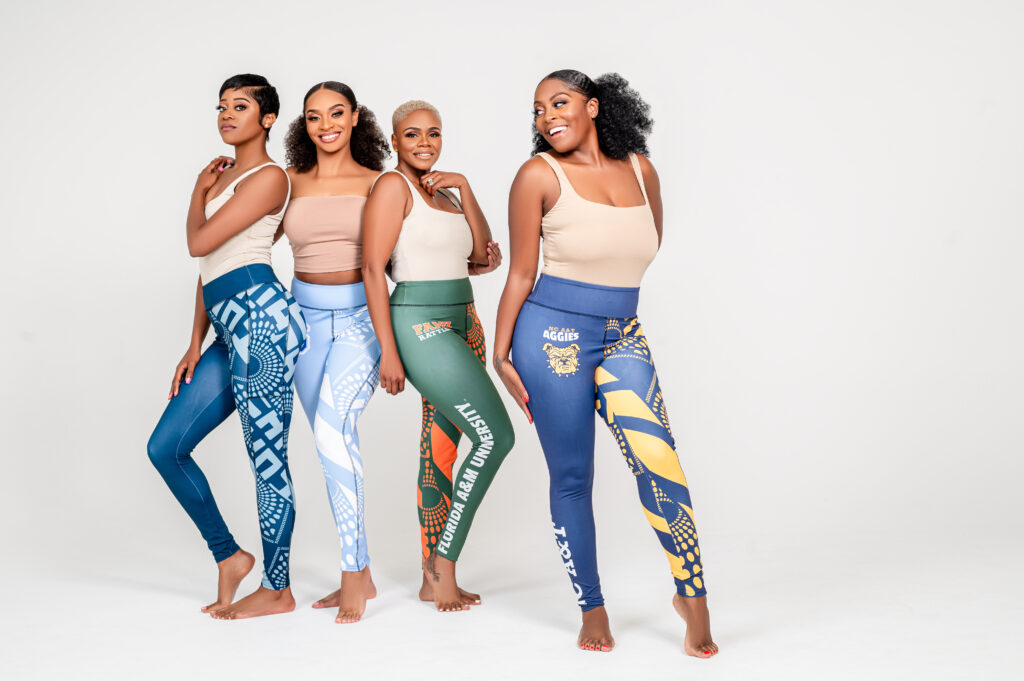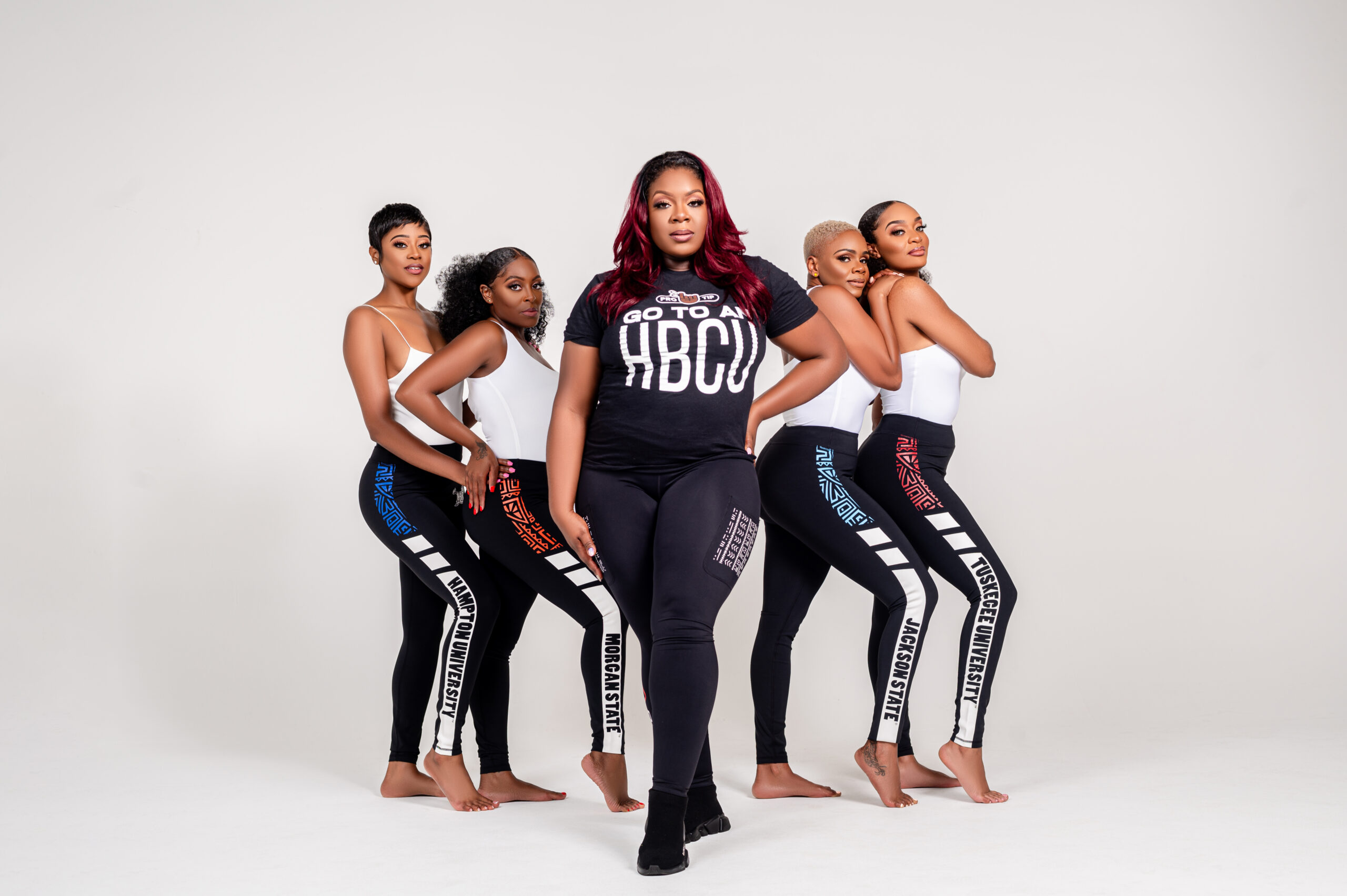For HBCU Leggings Brand Owner Amina Hammond, like many others, the 2020 lockdown was overwhelming. Emotions were running high, while everyone was sheltering in place and navigating the challenges of remote life. In addition, society was witnessing political unrest during an extremely important election season.
After a day of balancing her wellbeing, full-time job and newly appointed position as a part-time teacher, Hammond would be “completely frazzled” by the time her husband came home from work. To combat the daily pressure, he suggested that she find something creative to do every day to release stress. She decided to take his advice, and started to put “pencil on paper.” She began drawing more and designing college apparel that eventually would become apart of her HBCU Leggings product line.
“It was a necessary release for me to start doing design and start this business, while we were in shutdown,” Hammond told 21Ninety. “That’s how this whole business was born by just … trying to be creative.”

The idea to design feminine HBCU apparel came to Hammond after she received positive feedback for a shirt that she designed. During the shutdown, she joined a Howard University alumna Facebook support group, called “The Ladies of Howard University.” After the then President-elect Joe Biden nominated Kamala Harris for Vice President, the group wanted to host a fundraiser. The purpose of it was to encourage students to vote. After two weeks, Hammond sold so many shirts that the group was able to donate $17,000 to her alma mater.
Many women who purchased the shirt reached out to Hammond saying that her designs were fresh and new. They also noted that it added a “feminine touch” that is often not seen in the standard unisex college apparel.
“As I really looked deeper into it, … I didn’t feel like there was enough ladies representation,” Hammond told 21Ninety. “It didn’t even out, so I saw a big opportunity to design better looking women’s apparel primarily to represent these schools.”
With each design, Hammond wants her fellow HBCU alums to feel pride and quality. She wants them to “rock your legacy.” It’s a legacy that begins with the forefathers of each institution and continues to the newest generation of changemakers. Each product drop consists of clothing items that are unique and authentic.
“I want it to reflect everything that I feel we feel about our schools,” Hammond said. “I want them to feel that it is high-quality, and … it is sexy and unique. When you put it on, it won’t feel like you can swap 50 school logos.”
She spends time creating each design to ensure its authenticity. It may be something small, like including “The Mecca” on a shirt for Howard University or incorporating a school’s motto. Although she doesn’t know other institutions like she knows Howard University, she doesn’t let that stop her from being intentional. She talks to alumni from other schools to see what matters to them and what they loved most about their beloved HBCU. Then, she uses that information to create her designs.
HBCU Leggings is a labor of love for Hammond. While she comes from an entrepreneurial family and has run a successful campus business, there are some pieces of information that she still is learning. She describes the learning curve with her brand as “trial by fire.” She is learning specific logistics, like where apply to the label or where to order hang tags, as she goes. Sometimes, the journey may be hard, but the love from her community keeps her going.
“I have wasted money partnering with the wrong people, but [I’m] continuously learning and thinking of it as the price to pay for being in business in a lane that I’ve never been in and don’t have anyone really guiding me step by step on how to go,” Hammond told 21Ninety. “Our love is undying, [and] that keeps me energized, and it makes me want to keep designing dope stuff that we can rock and feel proud.”

Hammond wants to continue to expand HBCU Leggings by adding new licenses, reaching more HBCUs and expanding into more college bookstores. As a small business, she wants to continue to break barriers and chart paths for the next generation.
“I want to infiltrate more of that, and I want them to see the value of bringing in the alumni businesses and Black businesses,” she said. “I’m going to keep fighting to get into the larger big-box retailers, as a small business.”
She advises every aspiring entrepreneur to keep going, believe in themselves and, above all, just get started.
